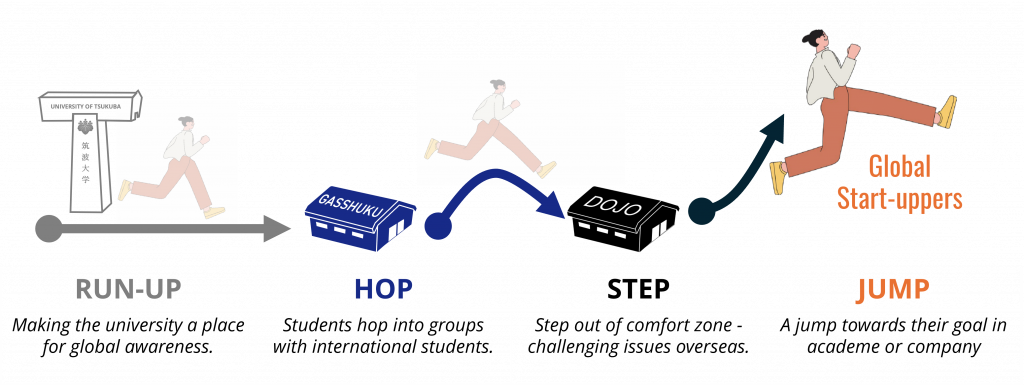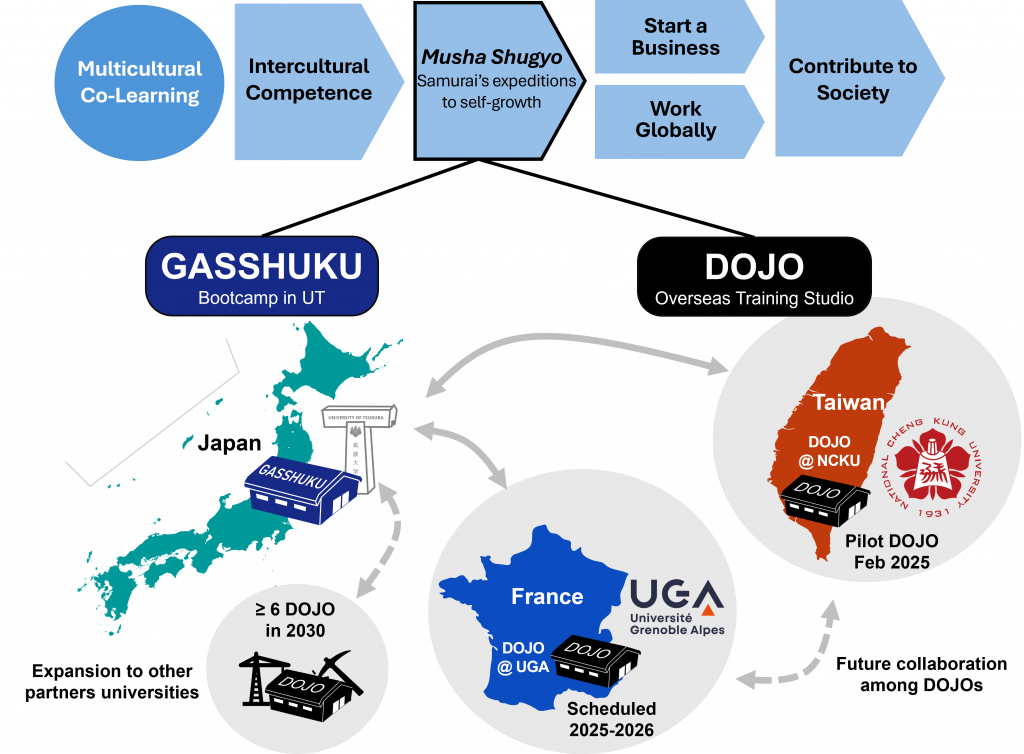SOCIAL IMPACT TSUKUBA is the initiative of University of Tsukuba to promote multicultural co-learning, bringing together Japanese and international students to study collaboratively, leveraging their cultural diversity. Together engage in Project-Based Learning: they identify, analyze, and propose solutions to challenges in regions both within Japan and abroad, intending to implement these solutions in society. Through this program, students will cultivate their passion and capabilities to challenge global issues.
The “Multicultural Campus Project Toward Social Impact” (hereinafter referred to as the “Social Impact Project”) was launched this fiscal year by the Ministry of Education, Culture, Sports, Science and Technology (MEXT). Its goal is to further promote university internationalization by establishing frameworks for international collaborative learning both domestically and abroad, facilitating the outbound mobility of Japanese students, and attracting and retaining talented international students. These elements are intended to create a virtuous cycle where each component positively reinforces the others.
Our university has been continuously selected for major global initiatives promoted by MEXT, starting with the “Global 30 Project” (launched in 2009), followed by the “Go Global Japan Project (GGJ: Departmental Type)”, and the “Top Global University Project (SGU: Top Type).” With the recent selection for the SI Project, our university has now been chosen for all of MEXT’s key globalization initiatives.
The University of Tsukuba was selected in November 2024 under the “Type II: Overseas Expansion” category of this project and has been designated as the coordinating institution among the Social Impact Project-selected universities.
GASSHUKU and DOJO Programs
It is the initiative of University of Tsukuba to promote multicultural co-learning, bringing together Japanese and international students to study collaboratively, leveraging their cultural diversity. Together, they identify, analyze, and propose solutions to challenges in regions both within Japan and abroad, intending to implement these solutions in society. Through this program, students will cultivate their passion and capabilities to challenge global issues.
To foster ‘global start-uppers’ with strong analytical skills, intercultural competence, and innovative thinking, University of Tsukuba adopted the concept of musha shugyo (武者修行) —the ‘samurai’s journey of self-growth. It is similar to the Chinese Youxia, or Knight Errantry in feudal Europe. A warrior (shugyōsha), would wander the land honing his skills. This is executed through Run-up, Hop, Step, and Jump programs.

Multicultural Co-Learning Meister System is an Achievement-based assessment to track students’ learning progress. It incorporates open badges (digital credentials) verifying the skills, achievements, or experiences gained by students. Japanese and international students tackle challenges together, through “GASSHUKU” and “DOJO” where companies, organizations, universities, and communities jointly provide learning opportunities.

| Local Musha Shugyo | International Musha Shugyo |
| Students from overseas partner universities work with Japanese students to learn on social issues experienced by local governments, NPOs, and companies in Japan. • Opportunity to work on social issues in Japan in international teams • Internship opportunities in Japan | Japanese students work with local students from CiC and other overseas partner universities to learn from social problems in the area. • Short-term training programs such as hackathon events and internships • Granting credits and issuing micro-credentials. |
